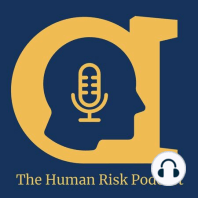51 min listen

Alix Hope on Fluid Landscapes & how Taste Architecture can impact our perception
Alix Hope on Fluid Landscapes & how Taste Architecture can impact our perception
ratings:
Length:
46 minutes
Released:
Apr 4, 2020
Format:
Podcast episode
Description
On this episode, I speak with Alix Hope who is a Creative Strategist for design agency Bompas & Parr. They are Taste Architects who specialise, amongst other things, in immersive events.Given the changes the Coronavirus has brought on our lifestyles and the new behaviours we are being required to adapt, Bompass & Parr recently released a report called Fluid Landscapes. This explores what is happening and what might happen as we shift perspectives from the freely flowing behaviours of a world without Coronavirus, to a world that has forcibly embraced fresh routines .Alix is the report's author and joins me to talk about it and what they are predicting for the new world we'll be living in.You can read more about Bompas & Parr on their website: www.bompasandparr..comDetails of the Creative Landscapes launch event on 8th April at 1600 UK time are available on their Instagram feed: https://www.instagram.com/p/B-hngM-ngNi/.You can follow them there: @bompasandparr
Released:
Apr 4, 2020
Format:
Podcast episode
Titles in the series (100)
Tom & Christian's 4th Human Risk Talk: In this episode, co-host Tom Hardin and I talk about more stories from the news that fascinated us from a Human Risk perspective. We begin by talking about the Luanda Leaks, then explore the recent scandals involving the Saracens Rugby Team in the UK... by The Human Risk Podcast